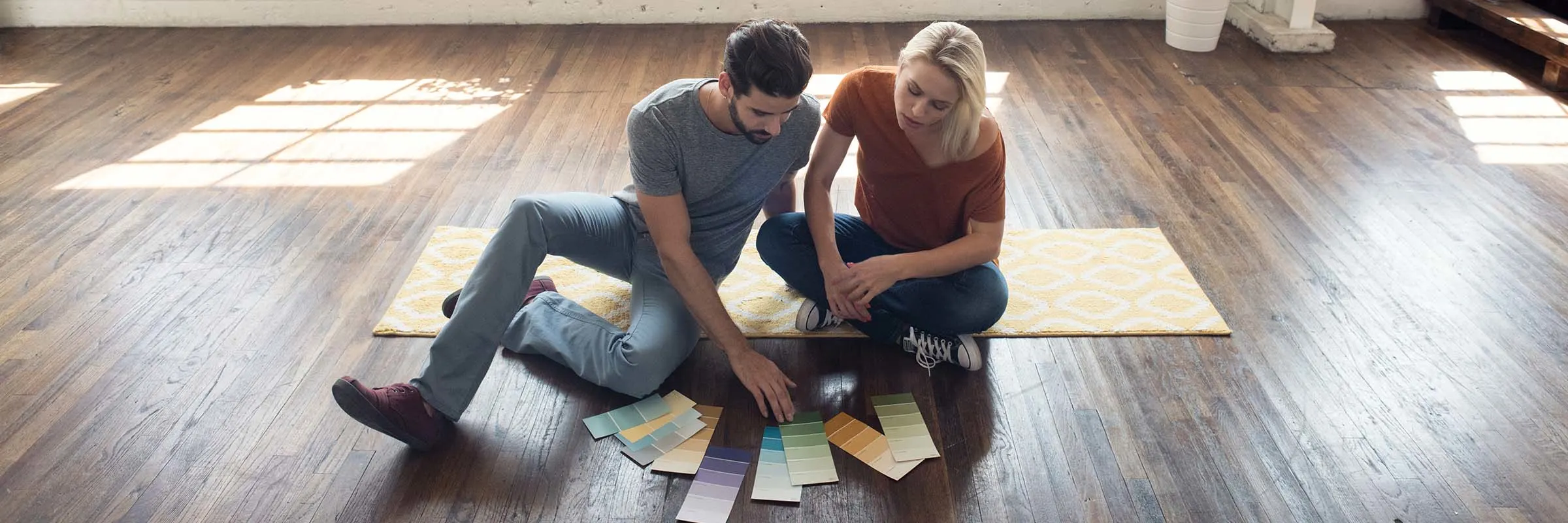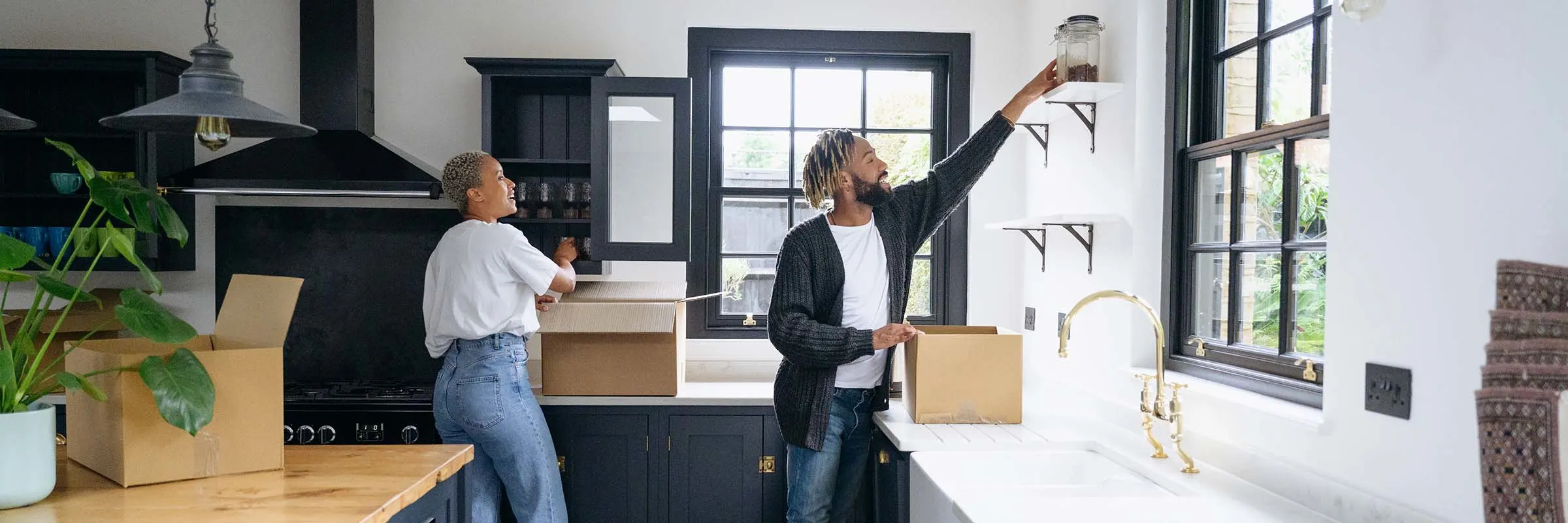When considering your budget for buying a house, you might think about the down payment and monthly mortgage payment. But as a future homeowner, these aren’t the only costs you should factor in. As you search for homes, having an idea of the true cost of owning a home can help prevent sticker shock and help you prepare.
Costs of owning a home
Look at the list of one-time and ongoing costs of being a homeowner, based on national averages.
One-time costs | Ongoing costs |
|---|---|
Down payment: 3% to 20% of home price | Mortgage payment: Varies |
Appraisal fee: $500 | Property tax: ~$2,654/year |
Inspection fee: $200 to $500 | Homeowner’s insurance: ~$1,820/year |
Closing costs: 2% to 5% of home price | Private mortgage insurance: 0.46%-1.5% of the loan amount |
| Homeowner’s association dues: ~$191/month |
| Maintenance: At least 1% of the property’s value annually |
| Utilities: ~$430/month |
One-time homebuying expenses
There are a few one-time expenses that you will want to save for before you buy your home, including a down payment, appraisal fee, inspection fee and closing costs.
Down payment
The golden rule used to be that down payments must be 20% of the purchase price, but that’s no longer a steadfast expectation. Today, a variety of financing options are available.
Take quiz: Which mortgage is right for you?
Appraisal fee
If you’re planning to get a mortgage, your lender will likely require you to get a home appraisal. The typical cost for an appraisal in 2023 was $500. An appraisal provides an unbiased estimate of the property’s fair market value (based on its condition, location and size, current market trends and recent sales of similar, nearby homes).
Inspection fee
A home inspection examines the physical condition of the house to bring existing (and sometimes potential) issues to your attention before closing. Inspections typically cost between $200 and $500.
Closing costs
Closing costs are typically 2% to 5% of the loan amount. For a $350,000 home loan, this would put closing costs around $7,000 to $17,500. Several costs go into closing, including lender fees.
A savings account and a solid emergency fund could come in handy for both expected costs and surprise expenses.
Ongoing homeownership costs
You can plan for some ongoing costs from the moment you sign the mortgage paperwork.
Mortgage payment
When you take out a mortgage, you can repay it over a predetermined term (typically 15 or 30 years). Payments are usually made monthly — a portion pays down the principal, and the remainder goes toward interest charges. Some lenders require you to pay your property taxes and your homeowners insurance as part of your mortgage payment.
Property tax
Your local government levies property tax based on your home's value and location. This cost varies considerably based on where you live, but a typical homeowner pays around $2,654 per year in property taxes.
Homeowner’s insurance
There are two main types of homeowners insurance: dwelling and personal property insurance. Dwelling coverage protects your house, while personal property covers the items inside your house.
The price fluctuates based on your level of coverage and location. But on average, homeowner’s insurance costs around $1,820 per year for a policy with $300,000 in dwelling coverage. When deciding how much coverage to purchase, consider how much it would cost to rebuild your house instead of looking at how much your house is worth.
Private mortgage insurance
When you make a down payment of less than 20%, your lender might require you to get private mortgage insurance (or PMI). According to an analysis by the Urban Institute, the average monthly cost of PMI is 0.46 percent to 1.5 percent of the loan amount. You can pay it in full as part of your closing costs or paid monthly. Once you reach 20% equity in your home, you may be able to cancel it.
Homeowner association dues
If you buy property in a community or building that has a homeowner association (HOA), you’ll likely have monthly or quarterly fees. The average monthly HOA fee is about $191 a month.
Maintenance
Even if you don’t buy a “fixer-upper,” most houses need maintenance and upkeep at some point. In general, you can expect to spend about 1% of your home’s value safeguarding your property each year.
Utilities
Cost for utilities such as electricity, water, air conditioning, heat or WiFi can vary based on your location and size of your home. On average, homeowners pay around $429.33 per month for utility bills, which comes out to $5,151.96 per year. But researching costs in your area and accounting for your preferences (such as subscriptions, internet speed and more) will help you determine how much you’ll need to budget.
Unexpected expenses after buying a house
While you can’t predict every extra expense, there are some you can try to anticipate.
Lawn and tree care: The cost will vary depending on your needs, whether that’s hiring someone to mow your lawn every other week or an occasional garden refresh. Overall, the average cost of mowing ranges between $49 and $205 for an average of $123 per visit.
Leaf or snow removal: Leaf removal averages between $300 and $600. Annual snow removal averages between $40 and $450.
Pest control: You can expect to pay between $400 and $950 yearly for general, full-service pest control, but the cost can vary depending on your circumstances.
Security systems: There are a lot of home security options, so your cost will depend on your preferences. The average cost for a professional surveillance service is $600, but they also may charge an activation fee, which can run up to $230. There may also be monthly charges, ranging between $20 and $60 per month, with prices varying depending on the amount of equipment being monitored and how advanced the services are. Meanwhile, outdoor security cameras are an average of $175 each and video doorbells cost an average of $170.
Appliances: New appliances can vary widely depending on the type, model and tier (ranging in average between $350 and $8,000), so be sure to account for any missing appliances while you house hunt.
Furniture: This expense can vary widely but the average cost to furnish an entire home is around $16,000, but the price can range between $3,500 and $95,000.
Total cost of homeownership
While these prices may look different if you decide to build a house, you'll want to make sure you're fully prepared financially for owning a home. A savings account and a solid emergency fund could come in handy for both expected costs and surprise expenses.



